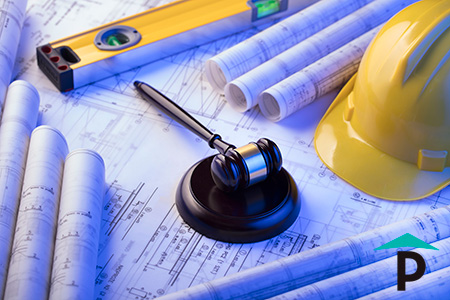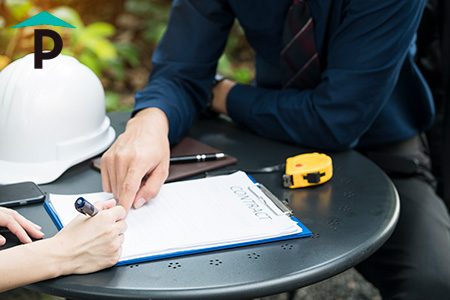Construction companies need to ensure they are protected when they agree to a contract. Should something go wrong, then you may face a big deal, be left with a deficit in your budget, or have awkward questions to answer. It’s easy to say “nothing will go wrong because we’ll cover every base,” but you never know what will happen. The world of construction is unpredictable.
Call: (844) 612-7238
Surety bonds are in place to protect all parties, from the obligee to the third party, otherwise known as the principal. There are two common types of surety bonds, and here at Pinnacle, we specialize in them all. Commercial surety bonds are one section, but let’s take a look at the contract bonds first. By understanding this aspect of the industry, you can gain an insight into what you need.
Contract Surety Bonds
 These are the types of bonds which the government or a project owner wants contractors to get before bidding. With the knowledge that the third party has a surety in their back pocket, they have faith in the fact that they won’t lose money. The types are as follows, yet they aren’t restricted to the following either:
These are the types of bonds which the government or a project owner wants contractors to get before bidding. With the knowledge that the third party has a surety in their back pocket, they have faith in the fact that they won’t lose money. The types are as follows, yet they aren’t restricted to the following either:
– Bid Bond: Gives the owner of the project some security in case a bidder doesn’t follow through on their end of the bargain. Lots of people assume successful contractors are trustworthy because they acquired in the deal in the first place. In reality, there are lots of dodgy firms out there that will try their luck and walk away if things go south.
– Performance Bond: As the name suggests, this is a form of security for the obligee if the contractor doesn’t perform to the standards set out by the deal. Although it sounds similar to the first type, it’s different because this is based on their performance once the contract is agreed. Again, it’s an extra layer of protection in case the subcontractor turns out to be low in quality.
– Payment Bond: This ensures the contractor pays the bill for things such as labor and material costs. When they bid for a contract, they have to make their profit by being frugal and working within their means. They can’t charge you for the extras because that stuff is already incorporated into the price.
What Are Commercial Bonds?
 These are the types of surety bonds which individuals or businesses and entities of the government need. If you’re going to enter into a partnership with any of the above, then it’s likely you’ll come into contact with some of the following:
These are the types of surety bonds which individuals or businesses and entities of the government need. If you’re going to enter into a partnership with any of the above, then it’s likely you’ll come into contact with some of the following:
– Financial Guarantee Bonds: In short, these guarantee payment on an obligation. For example, if you lease a building for your offices, you’ll need to pay rent. What the landlord may ask of the tenant is to purchase commercial lease bonds. That way, if there are any discrepancies, the insurer will pay the balance on your behalf. Should a claim be made against you, then the surety bonds specialist would recoup their losses by claiming against the bonded party.
– Broker Bond: There are many different types of broker bonds, but one of the main ones is freight surety. Simply put, the form of insurance protects the customer from anything dodgy or illegal the broker might try and pass off as part of the deal. To apply for one, a company usually has to submit to a credit check to ensure their financials are in decent shape. Please note this is only one type of broker bond and each one has their own requirements. Always double check them before bidding to avoid any nasty surprises.
– Appeal Bond: When a judgment goes against the company, it’s your right to appeal to the next stage. Hopefully, the court will see the case a different way and quash the judgment. Even if they don’t, at least you understand the initial verdict was correct; you have a second opinion. To avoid paying out until the appeal process is over, the appeal court asks for a commercial surety bond which is known as “supersedeas.” With it, you’ll need to pay up front and then try and recover the money later, which is tricky in most situations. As a rule, it’s better to hold onto the cash as it’s less expensive.
– Auto Dealer Bond: Sometimes this is also known as a “used car dealer bond.” Please note that you will need this commercial surety whether the dealership sells second-hand models or brand new ones. Because the industry is full of con men (and women), this action was brought in to protect customers. If a shopper is ever cheated or treated fraudulently, the permit bonds company will pay them out. To get hold of one, you’ll need to go through a credit check to make sure you’re stable financially.
Is There Anything Else?
 Yes, the last two you need to consider are license and permit bonds. For people and companies to perform some activities professionally, they need to post a bond. When that happens, they will be given a permit or license to trade legally. It depends on the states or local authority, but the main ones are:
Yes, the last two you need to consider are license and permit bonds. For people and companies to perform some activities professionally, they need to post a bond. When that happens, they will be given a permit or license to trade legally. It depends on the states or local authority, but the main ones are:
– Customs Bond: Business owners want their startups to grow and start trading globally. When this happens, there is a certain type of permit and license bond which is needed: customs bond. In simple terms, it’s there to ensure that import duties and taxes are paid. So, if there is trading across countries’ lines, this is essential. Please note a continuous one is 10% of duties and taxes for a twelve month period. $50,000 is the minimum amount.
– Warehouse Bond: Any building or private premises that are bonded has protection if there are losses. Normally, you have to prove the facility didn’t live up to the standards it set out in the contract. Claims can come from but aren’t limited to – fire, theft, water damage, poor maintenance, and loss of inventory.
Conclusion
Commercial surety bonds are essential for to ensure neither party losses money. The fact that you lack an element of trust means your bid won’t be accepted without the right insurance.


